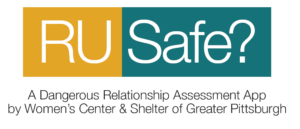Last month you learned about some of Women’s Center & Shelter’s support groups (At The Table, Life Skills and Career Development). This month we want to share with you some of our other support groups that we offer to shelter clients of WC&S. Continue reading to learn more! RECOVERY GROUP – WC&S’ Recovery Group facilitators […]
Stories of Hope
WC&S’ Support Groups Aim to Help Heal
At Women’s Center & Shelter, not only is it extremely important to ensure the physical safety of our shelter residents but it’s also important to help with their emotional safety and healing process. We help our residents by offering a variety of groups—giving them the options to pick which ones interest them. WC&S wants to share some of […]
How To Talk To Your Children About Domestic Violence Media Coverage
We know that parents may have questions on how to handle discussions with their children regarding the recent media coverage of Ray Rice battering his wife. We thought it may be helpful to provide some tips and resources regarding this matter. A great resource provides tips for discussing fallen celebrities with your child or children. […]
Technology – Helpful or Harmful?
In the July Blog, we talked about an example of technology being helpful by introducing our new RUSafe App, which connects victims of domestic violence and the people who care about them to life-saving resources. This app raises many questions on technology and its role in everyday life but particularly in relationships. There is no […]
Women’s Center & Shelter Releases App!
What if downloading an app had the potential to save a life? Well, the new RUSafe App is doing just that. The app was created by Women’s Center & Shelter of Greater Pittsburgh (WC&S) to help prevent domestic violence death and injuries by connecting victims, their families, and their friends to domestic violence services. What […]
Women’s Center & Shelter’s Children’s Program
Studies indicate that between 10% and 20% of children in the United States are living with intimate partner violence in their homes and thereby having their sense of safety and security devastated. This continued exposure to violence and abuse overwhelms their ability to cope and manifests itself through a broad range of problem behaviors. It’s […]









